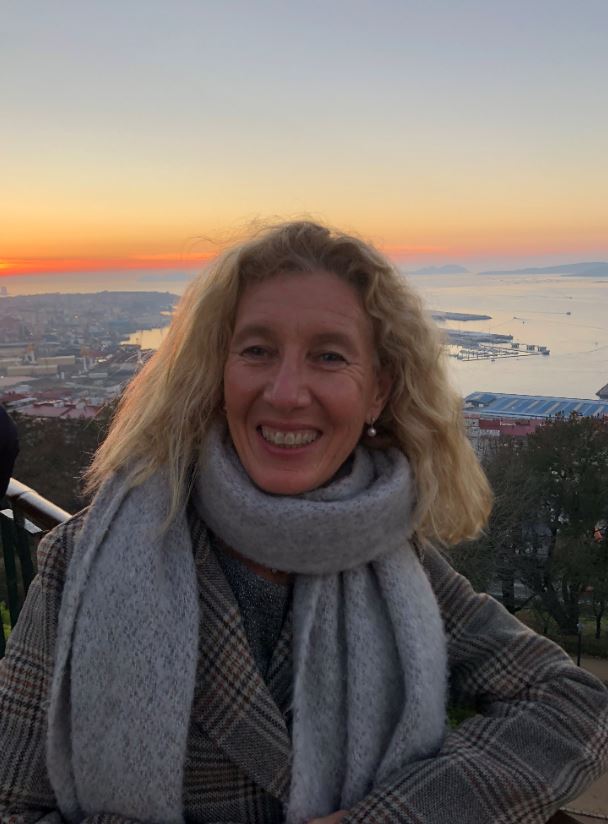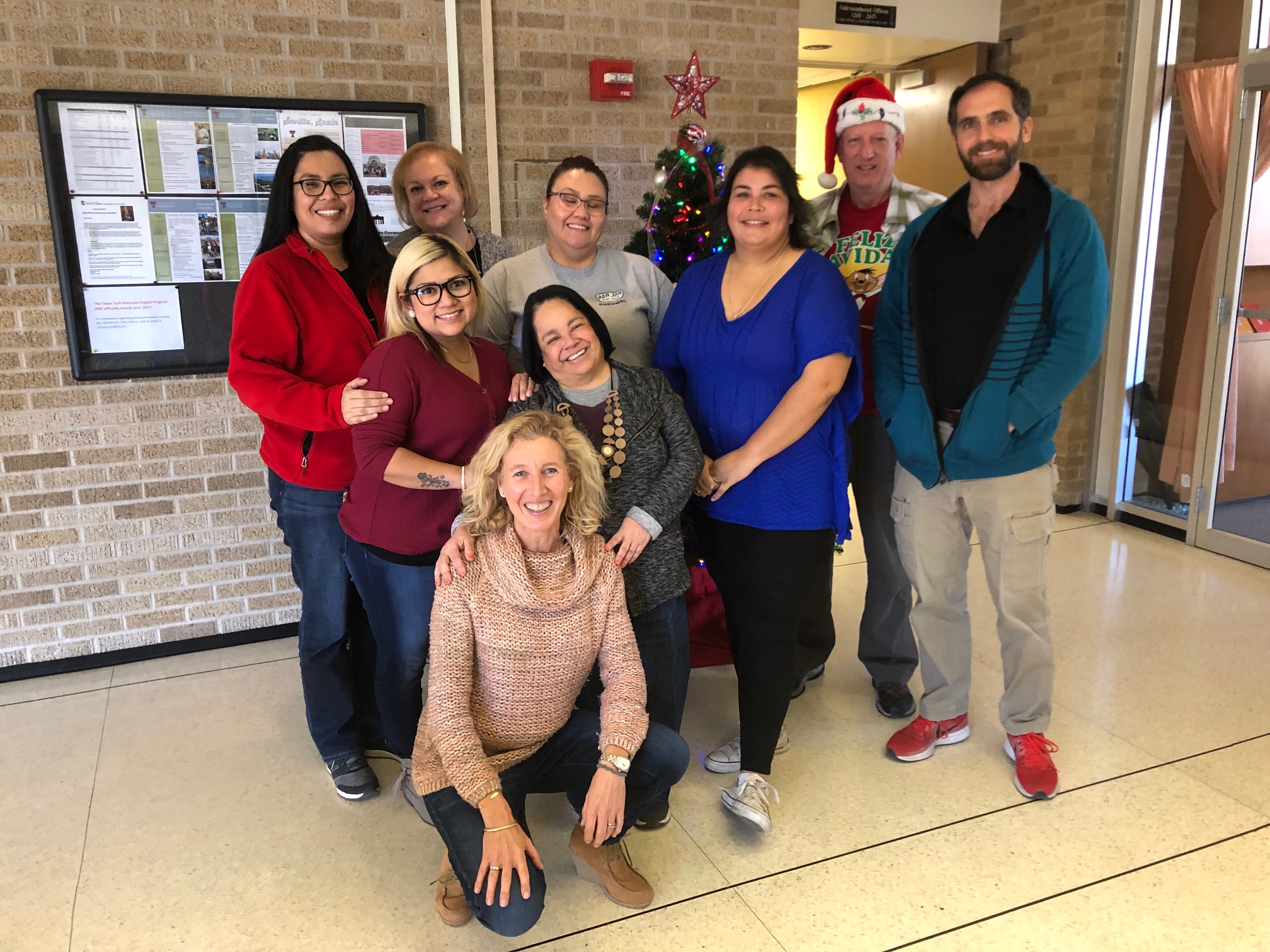Faculty Spotlight: Carmen Pereira-Muro, Ph.D.
Department of Classical & Modern Languages and Literatures

Carmen Pereira-Muro, a native of Vigo in Galicia, Spain, is the chair and a professor of Spanish for the Department of Classical & Modern Languages & Literatures at Texas Tech. Her experience studying at the university in Santiago de Compostela, a worldwide pilgrimage destination for centuries, sparked a passion for creating opportunities to educate young people on the rich tapestry of international cultures and the universal principals that bind the world together.
Tell us about growing up in Spain and how you got interested in higher education.
“I was born in Vigo, a city in the northwest Spanish region of Galicia. Galicia is very different from the image that people usually have of Spain (especially our students going to Seville!). It has a very mild climate, is very green and lush, hilly, with a rugged coast that opens into deep bays. I am probably totally biased, but I think it is a gorgeous land, and the bay --or "ría" in Spanish—where my city sits, the most beautiful of them all. Think Ireland, Washington State, San Francisco Bay, or the coast of Maine."
"I went to the University of Santiago de Compostela, in the capital of Galicia, and the site of one of the most important pilgrimage destinations in the world, the tomb of the Apostle St. James. Santiago is at the end of a long pilgrimage road that spreads all over Europe, and since the Middle Ages, people from all countries and languages have walked the "Camino de Santiago" and poured into the city. A UN "Heritage of Humanity" site, Santiago is an impressive medieval city, all carved in stone, boasting the crown jewel of Romanesque cathedrals. Living and breathing in this city was most likely the reason why I decided to study Ancient and Medieval Art History. And it was perhaps Santiago's universal, international vocation as a space where people from all countries come together with a high, lofty goal in mind, what is behind my immense appreciation of what the US academia means, and TTU in particular: a space where we are all welcome, no matter where we come from, as long as we have a will to learn and to share what we know. ”
What brought you to Texas Tech?
“I came to the University of Madison, WI, after finishing my degree in Santiago. I changed my field to 19th century Spanish literature and culture (a fascinating field, but we can talk about that another time). I worked at the University of Miami and other institutions before coming here. TTU had a job opening right in my field, the department and the university were very welcoming and offered many opportunities for growth, and Lubbock was a great place where to come and raise my daughter (yes, better than Miami!)”

As the new chair for Classical & Modern Languages & Literatures, what are your goals for the department?
“I would like my department to be recognized at the university, regional and national level as a place of high-quality teaching, and of high-quality research. We do teach languages, but also fantastic literature and culture courses for our majors and minors. I would like TTU students majoring in fields such as Pre-Health, Political Sciences, International Relations, History, Business, Engineering, Hospitality and so many others to be aware of the great opportunity they have to enhance their job opportunities (and their lives) by combining those majors with a major or minor in a second language and culture.”
“One of my goals is to create more classes that are designed specifically for the professions, like Medical, Business, or Translation classes, offered in the different languages.”
"I would like to see our study abroad programs grow and establish a second one for Spanish in Costa Rica. Given our geographical location, it should be imperative for us to have a presence in Latin America. We hope to start a program there in the summer of 2021."
"I would like to see our graduate programs grow, and for that we need higher stipends and a change in the current international insurance policy. I will keep fighting for our graduate students to have the support they need and deserve here at TTU."
"Finally, I would like to make some key new hires in growing, high demand areas like Spanish Heritage Studies (so important now that we have the Hispanic Serving Institution designation) and Translation studies. And to spearhead the creation of a Latin American and Iberian Studies Center, but that brings us to the next question."
Tell us about the purpose and your goals for the Iberian Latin American Studies Center.
“I started developing this project a couple of years ago. I began to meet faculty in many departments who study Latin America and the Iberian Peninsula from different disciplinary angles: Agriculture, Architecture, Art History, Anthropology, Music, History, Cultural Studies...The more people I knew, the more opportunities I saw to develop an interdisciplinary program here at Texas Tech, a research network, ideally a Center, like the one we had in my own alma mater, Madison. It would be such an enrichening research possibility, and a great recruitment tool for faculty and for students. Some members from the Spanish program and I received a diversity grant that we used to bring in two consultants from well-established (but different sizes and approaches) LAIS programs. They met with members of the administration and faculty from several interested departments. The interest, the potential, and the expressed support from the administration is there. The next step will be to establish an interdisciplinary steering committee to develop the project and start applying for the all-important grants needed to support such a center.”
What advice would you offer to an international student wanting to study in the United States?
“COME!!!! It is a life changing experience, and I am speaking from my own experience. The university here has so much to offer, of course at the academic level and in the million extracurricular opportunities you will have, but especially it offers a space for critical thinking, for dialogue, for growing as a person, like I know no other.”
International Affairs
-
Address
601 Indiana Avenue, Lubbock, TX 79409-5004 -
Phone
806.742.3667 -
Email
oia.reception@ttu.edu
